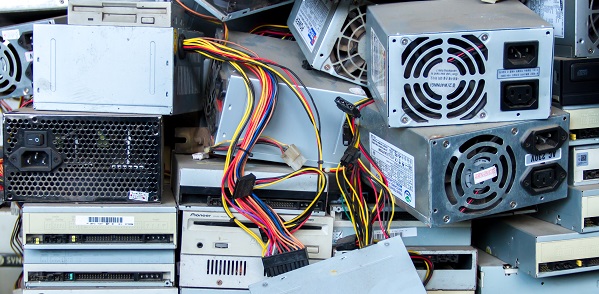
Sustainable materials management (SMM) is an EPA program developed to maintain sustainable electronics manufacturing practices. Companies can capitalize on the SMM program by ensuring their electronics come from manufacturers who participate. The program bears a close relation to electronics recycling issues and current efforts in the U.S. to address the growing e-waste crisis.
The EPA’s Role in Electronics Recycling
It makes sense that the Environmental Protection Agency would create a program designed to encourage and promote sustainability in electronics manufacturing. The government agency takes a lead role in the development of rules and regulations to ensure that electronics and hazardous wastes are properly disposed.
The EPA is also an enforcer, making sure that companies remain in compliance with existing state and federal environmental laws, such as the Clean Air Act. The agency also ensures deviant companies are punished for non-compliance or held accountable for violations to consent decrees and settlement arrangements.
The EPA’s SMM program developed within the pantheon of policies issuing from the Organization for Economic Cooperation and Development (OECD) an international council consisting of member nations and states aimed at developing policies for sustainable social and economic development.
The OECD seeks to promote waste-as-resource policies, including SMM in a number of industries around the world. In close association with these efforts is the OECD’s Eco-Innovation and Sustainable Manufacturing initiatives which promote not just end of life responsibility, but also initial electronics manufacturing with an eye toward sustainable reuse and recycling.
Why SMM Electronics?
Lots can be said about the lack of federal legislation in the U.S. specifically enforcing electronics recycling, but this does not mean the nation is without viable plans and policies aimed at the issue. Part of the EPA’s promotion of environmental stewardship involves the National Strategy for Electronics Stewardship (NSES), a series of interagency recommendations designed to reduce e-waste and build capacity for electronics recycling throughout the U.S.
The SMM program is part of the NSES strategy to engage electronics manufacturers in a continued commitment to environmental stewardship. In particular, the SMM Electronics Challenge is a rewards system that incentivizes ethical and sustainable behavior and manufacturing practices in the electronics industry. Through the program, manufacturers and retailers are encouraged to send 100 percent of the electronics they collect to certified third-party recyclers.
More and more companies are striving to present a better commitment to environmental stewardship to the public. To that end, it’s important to be aware of the companies participating in the SMM Challenge. These manufacturers are keys to the proper disposal of electronic devices at the business level and play an essential role in addressing the e-waste crisis in the U.S.
How Do SMM Participants Recycle Their Products?
The SMM Challenge works as tier-based rewards program. SMM Challenge participants collect electronics and send them to certified third party recyclers for proper disposal. Gold, Silver and Bronze Tier awards are granted yearly relevant to the amount of commitment and dedication to reuse and recycling all electronics collected.
LG Electronics, for example recently received the Gold Tier award through the Challenge. The company sent 100 percent of the electronics it collected to its third party recycler and received honors for sharing detailed information about its materials management process.
The third-party recycler is a key component of the SMM program. Each recycler must be certified according to EPA requirements. Participating recyclers also may have additional certification such as the eStewards certification from the Basel Action Network (BAN).
Should My Company Send Electronics Back to the Manufacturer for Recycling?
One huge impact the SMM Challenge has had on national electronics recycling is that it has provided support for electronic manufacturers who take back used electronics for recycling. This means that many of the electronics we use at the office and at home can be sent back to the original manufacturer for collection when they reach the end of their life cycles.
Sending a device back to the original manufacturer in the is a sure way to properly dispose your electronics. Manufacturers participating in the SMM challenge work in connection with recyclers who are under strict guidelines to ensure that the device will be disposed sustainably and never shipped to undeveloped countries for recycling.
Are Companies Required to Participate in the SMM program?
As of now, companies are not required to participate in the SMM Challenge. However, many of the top electronics manufactures in the U.S. are already on board and reaping the benefits of exposure as a sustainable collector and recycler of electronics.
Participation is also forging the way to new, ethical design in the electronics industry. As companies look for ways to cut the costs of compliance with a patchwork of federal and state e-waste regulations, many are pursuing smarter, more ethical design solutions. This means devices created with end-of-life reuse or recycling in mind for a more complete, and more sustainable, production and sales cycle.
Your Company On the Next Level of SMM
If you’d like to take your company to the next level of sustainable materials management, the best way is to identify a manufacturer participating the SMM challenge and source your electronics from there. If you’re an electronics manufacturing company, it makes sense to learn more about the ways to become a certified participant, and if you’re on the hunt for a responsible recycler, pay close attention to those eligible and participating in the SMM program.